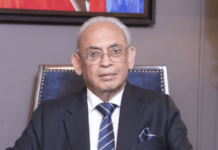Eros International and Colour Yellow Productions Pvt. Ltd.’s Tanu Weds Manu Returns (UA) is a sequel to Tanu Weds Manu. Tanu (Kangana Ranaut) and Manu (R. Madhavan) have been married for four years now and they live abroad. They have fallen out of love and both visit a team of psychiatrists to see if there is a possibility to improve matters but as bad luck would have it, Manu is taken to be suffering from a mental disorder, by the team of doctors and, therefore, put in a mental asylum. The bold Tanu leaves him to fend for himself and returns to her parental home in India. She informs his friend, Pappi (Deepak Dobriyal), who lives in India, about Manu’s state.
Pappi reaches London and gets Manu released from the mental asylum and the two of them return to India. One day, quite by chance, Manu sees a look-alike of Tanu and mistakes her for his estranged wife. But she turns out to be Kusum alias Datto (Kangana Ranaut), who hails from Haryana and studies in Delhi. She is an athlete. Manu falls in love with Kusum due to her looks which resemble Tanu’s. Slowly but surely, Kusum also reciprocates even though she knows that he is a married man. Meanwhile, Manu has sent Tanu a legal notice more with the intention of initiating talks with her for a rapprochement. Tanu’s lawyer, without her knowledge, replies to that by sending Manu a legal notice for divorce. Tanu has, in the meantime, touched base with Raja Awasthi (Jimmy Shergill) who was madly in love with her and had wanted to marry her.
As it turns out, Kusum alias Datto is to marry Raja Awasthi who has chosen her solely because she resembles Tanu. All hell breaks loose when Tanu learns of Manu’s plans to marry Kusum. She confronts both, Manu and Kusum, but is unable to stop the marriage.
What happens then? Does Manu marry Kusum? Or does Raja Awasthi succeed in stalling the wedding?
Himanshu Sharma has written an excellent story with twists and turns galore to keep the audience involved and engaged throughout the drama. The characterisations are superlative and nobody moves out of his character ever. Himanshu Sharma’s screenplay is extraordinary and is laced with excellent humour which keeps the viewers thoroughly entertained. The screenplay is so interesting, engaging and humorous that it appears to be almost flawless. The best part is that the screenplay involves audiences of every class and every age group and both, men and women. The opening scene itself is so interesting that the audience is completely taken in. The interval point is lovely and the second half also begins so brilliantly that it sets the stage for excitement galore once again. An enviable point about the screenplay is that it progresses very smoothly and there’s not a single scene which appears forced or out of place. Similarly, the entire drama unfolds so remarkably seamlessly that it doesn’t look one bit like it has been created! The simplicity and honesty with which the drama unfolds on the screen is yet another plus point. There are a number of scenes which remain with you long after the film is over. The opening scene of the film, the scene in which Kusum’s brother is prevented by another brother from setting Manu and Pappi on fire, the scene in which Tanu confronts Manu and Kusum, the scene in which Tanu, in a drunken state after the humiliation she faces in her confrontation with Manu and Kusum, roams around on the streets, the scene in which Tanu confronts Manu, the scene in which Manu and Kusum are getting married in the presence of Tanu, the entire sequence in which Kusum tries to help Pappi get the girl he loves, the scene in which Manu meets Raja Awasthi, the climax sequence…. the list is long, very long. Another fantastic point about the screenplay is that although Tanu and Kusum are on two different ends of the spectrum and Manu is at the centre, the audience’s sympathy goes to all three. That’s the victory of the writer!
Himanshu Sharma’s dialogues are gems. They go straight to the heart and strike a chord. If the witty dialogues evoke laughter, the weighty ones prompt the audience to clap. In fact, there are a number of clapworthy scenes as well as dialogues.
- Madhavan does a splendid job. Any actor could’ve easily gone overboard in the role, which would have reduced the impact of his performance, but R. Madhavan steers completely clear of overacting. As he has minimum dialogues to mouth, he has very intelligently used his body language, facial expressions and eyes to convey his feelings and his predicament and state of mind. Kangana Ranaut delivers yet another rivetting and award-winning performance, this time in a double role. So sensational is her acting that it is difficult or almost impossible to conclusively decide whether she is better as Tanu or Kusum. She gets into the skin of both the characters so effortlessly that it is difficult to imagine any other actress doing so as beautifully as her. With this film, Kangana proves that there is none quite as good as her. The Haryanvi language spoken by Kangana for Kusum’s character is lovely and is yet another plus point. If Kangana is endearing in light scenes, she is superb in emotional and dramatic ones too. Her dance in the ‘Banno’ song is memorable. The costumes worn by her as Tanu (designed by Reza Shariffi) are colourful and striking. Jimmy Shergill underplays marvellously as Raja Awasthi. He is very cute. Deepak Dobriyal deserves the highest praise for his endearing and entertaining performance as Pappi. He evokes laughter every time he comes on the screen and his sense of timing is outstanding. Swara Bhaskar shines as Payal. Although she gets limited scope, she leaves an indelible mark in people’s minds whenever she speaks. Eijaz Khan, as Payal’s Sardar-husband, provides good support. Mohd. Zeeshan Ayub makes his presence felt just too beautifully in the role of Tanu’s lawyer. Rajendra Gupta is excellent as Tanu’s father. As Tanu’s mother, Navni Parihar is very good. K.K. Raina makes his mark as Manu’s father. Dipti Misra is also lovely in the role of Manu’s mother. Rajesh Sharma is just too good as Kusum’s brother. Rahul Shanklya (as Kusum’s brother who lives in Haryana), Deepak (as Aakash Dahiya in a special appearance), Guneet Kaur (as Komal whom Pappi loves), Manu Rishi (as lawyer Fazal) and the others lend able support.
Aanand L. Rai’s direction is superb. For one, his narrative style is simple and he caters to every class of audience. Secondly, he doesn’t let boredom creep in for even a minute. Thirdly, he has recreated the atmosphere of a family drama splendidly. Fourthly, the recreation of the various cities/towns/villages is first-rate. Fifthly, his narration is honest to the core. And sixthly, he has extracted great and noteworthy performances from out of his cast members. Music (Krsna, Tanishk-Vayu and Surj-RDB) is good but could’ve been better. Of course, the ‘Banno’ song (by Tanishk-Vayu) is a hit number. Lyrics (by Raj Shekhar, Vayu and Surj-RDB) are very meaningful. Song picturisations (by Bosco-Caesar and Saroj Khan) are good; the choreography of ‘Banno’ song is remarkable. Krsna’s background music deserves distinction marks. Chirantan Das’ cinematography is terrific. Javed-Eijaz’s action scenes are beautifully choreographed. Wasiq Khan deserves kudos for his production designing. Hemal Kothari’s editing is razor-sharp and the results are praiseworthy.
On the whole, Tanu Weds Manu Returns is a sureshot super-hit film. It has entertainment for all sections of the audience and for all age groups. It also has tremendous repeat value. Ladies and youngsters, especially, will adore the film.




























